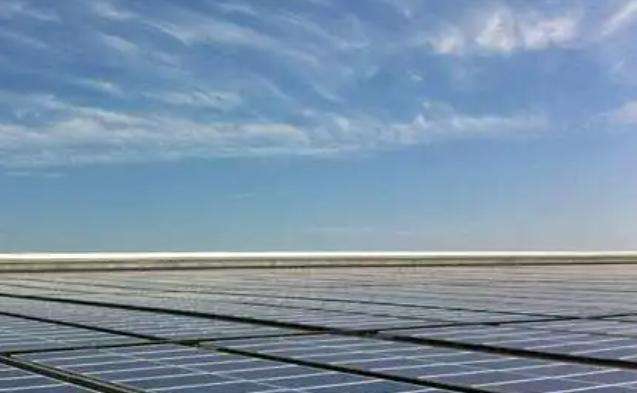1. Wind energy production will harm the local ecological environment, for example by destroying vegetation, changing topography, causing soil erosion and desertification.
2. Electromagnetic radiation produced by wind power generation affects human habitation. In wind power generation systems, generators, substations, transmission lines, etc. are the main causes of electromagnetic radiation. When the receiving device attached to the wind farm receives the signal, it will receive the electromagnetic wave signal reflected from the wind turbine blades.
The reflected signal is a delayed signal, which may have a greater impact on the AM radio system; At the same time, the rotation of the turbine blades will also produce a phase shift signal, which may impact the FM radio system. The material the blades are made from will also interfere with the onelectromagnetic waves. If the blades are made of metal materials, it will cause serious electromagnetic interference.
In addition, an alternating electromagnetic radiation field will form around high-voltage transmission lines, causing electrostatic induction relative to the ground, causing radio interference and affecting human health.
3. Wind energy affects the local climate. Wind energy uses wind energy present in the atmosphere. According to the law of conservation of energy, the consumption and production of one type of energy must produce or consume another type of energy. Therefore, wind turbines The electricity generation process must consume some of the wind energy present in the atmosphere. As an important factor in climate change, changes in wind energy will inevitably lead to climate change.
When certainIn offshore wind farms and inland wind farms operate, if the humidity is relatively high, a huge tail of water vapor will condense behind the wind turbine, which can affect the local microclimate, such as humidity, sand and dust have an impact.
4. Wind turbine blade damage is prone to accidents when the wind turbine blades are subjected to strong winds above 25m/s (wind speed cut off), although the wind turbine is in a state of stop. However, due to the limited bending moment, torque, shear resistance and extrusion that the blade root can withstand, in severe cases the entire blade may fly away.
Causes casualties and damage to buildings on the road (although wind turbines are mainly located in coastal areas with sparsely populated areas). In addition to extreme winds, blade surface corrosion, lightning strikes, ice cover, fissure, etc. can easily cause blades to break, causing accidents and affecting public safety.
5. Noise risks linked to wind energy production. For a wind turbine of such size, when the huge blades rotate (one blade requires a special long collapsible truck to transport), noise is inevitable.
The sound of wind blades can be roughly divided into three categories.
1. Thick noise, produced by the compression of the air and the blades. In windy weather, when we close the doors and windows, we often hear a sharp, harsh sound, which sounds like a ghost. crying or a howling wolf? , coupled with the gloomy sky outside, it's still a little scary to think about it.
2. Load noise, as the name suggests, is caused by the blades carrying a large load.
3. Impulse noise is generated when the Mach number is close to 1. In this waye, the impact of noise on the environment cannot be ignored.
Detailed information
Risk response measures:
1. The construction of a wind power plant requires preliminary planning. It should be far from feasible. residential areas and avoid environmentally sensitive areas.
2. Improve the design level of wind power generation so that it can be well integrated into the environment.
3. When developing wind power generation, environmental, economic and social effects must be considered comprehensively, and any of them cannot be ignored. The impact on the environment must be reasonably taken into account in both its positive and negative aspects.
Baidu Encyclopedia - Wind Energy
If you work in a wind farm, conditions are difficult because wind resources The bOur locations are remote areas such as the grasslands of Inner Mongolia, the eastern coast, Xinjiang, Yunnan and northeast China. If you work in a wind power equipment company, because these companies are machinery and equipment manufacturers, you usually need to go to wind farms located in the suburbs of cities with convenient transportation, such as Goldwind Technology, Huarui and Dong Qi, but there will be corresponding subsidies, generally 100 yuan/day. If you work for a wind equipment parts supplier, you have fewer opportunities to travel onsite. The installation location requirements for wind turbines are as follows: 1) Abundant wind resources. Small wind turbines should generally be used in areas with abundant wind resources, that is, the annual average speed of the vent is greater than 3 m/s and the cumulative number of annual effective wind speeds of 3 to 20 m/s is greater than 3,000. hours. (2) There is a stable dominant wind direction. Wind turbines should be installed wherever possible where the prevailing wind direction is relatively stable and seasonal changes are relatively small. (3) Small turbulences. Turbulence not only reduces the power output of a wind turbine, but also causes mechanical vibrations throughout the wind turbine. When turbulence is significant, mechanical vibrations can damage wind turbines. (4) Weather factors have little influence. Try to avoid areas where the airflow speed changes frequently and drastically to prevent the entire device from vibrating and damaging the fan. Avoid areas prone to strong winds. Strong winds are very destructive for wind turbines, so the impact must be consideredt ice and sticky snow on the shape of wind turbine blades. It should be emphasized that due to differences in terrain, relief and geology, the choice of installation location requires specific analysis and please seek professional advice.














